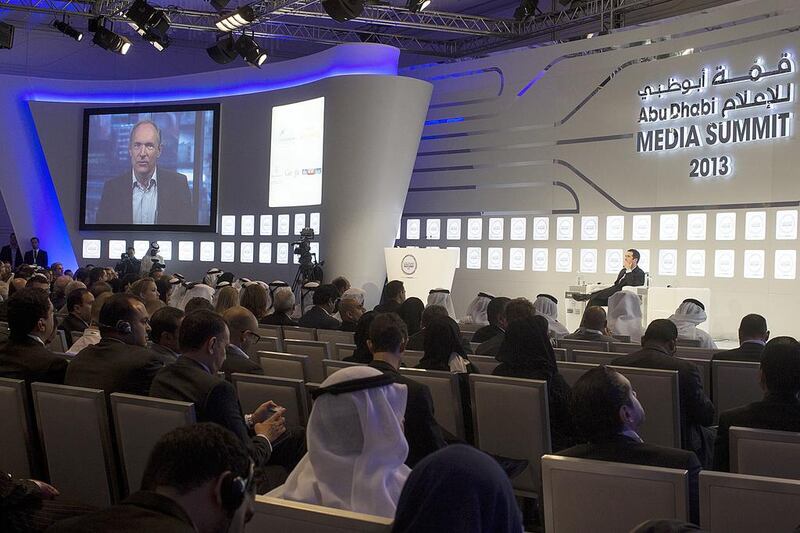Society needs to protect whistleblowers like the American Edward Snowden to prevent the "abuse" of power online, says the founder of the internet.
In an interview streamed live from New York for the keynote speech of the Abu Dhabi Media Summit yesterday, Sir Tim Berners-Lee highlighted the need for an agency to hold governments to account for their online activities.
“The old saying is who will guard the guards themselves? The guards of the guards must be responsible to the public and must be able to assure that human rights are not being violated. In the future what we have to do is set that system up,” said Sir Tim.
Referring to snooping into online activity by government security agencies in the United States and the United Kingdom, Sir Tim, who is English, said the two governments had not been “good enough”.
“The systems of accountability have failed. When that happens there is only one group that protects us from this abuse, abuse of us by people in power and that group is whistleblowers. [They] need protection, even if [whistleblowers] have clearly violated laws, society needs to come together and provide protection.
“At the end of the day we can’t trust any system we put together with however much goodwill, we can’t trust it won’t go astray and we have to rely on whistleblowers,” he said.
Sir Tim, who now heads up the World Wide Web Foundation, an organisation that promotes greater connectivity, also highlighted the need for a more open internet to help international collaboration and development.
“The web is an infrastructure that can be used by commerce or any type of activity. There has to be fairness of the marketplace, it has to be open so that everybody can participate in national and international discourse, about policies and laws. The web should be a neutral platform,” he said.
Currently, a third of the global population is connected to the web, with high cost and lack of infrastructure being the main barriers to connectivity for the other two thirds. The high price of smartphones and data packages prevents many people in developing countries from going online.
“There is a massive digital divide between the people who are connected and the people who are not connected. It turns out when you get connectivity to the web, it puts you in a completely different class of people,” said Sir Tim.
Greater connectivity would also help to solve healthcare issues, he said, including disseminating information to large numbers of people with great speed, whether to warn them about an epidemic or educate them on their diet.
The web’s new users will keep it fresh, he added.
“The human spirit is very strong and the human brain is very indomitable, they find all kinds of new ways of using it.”
thamid@thenational.ae





